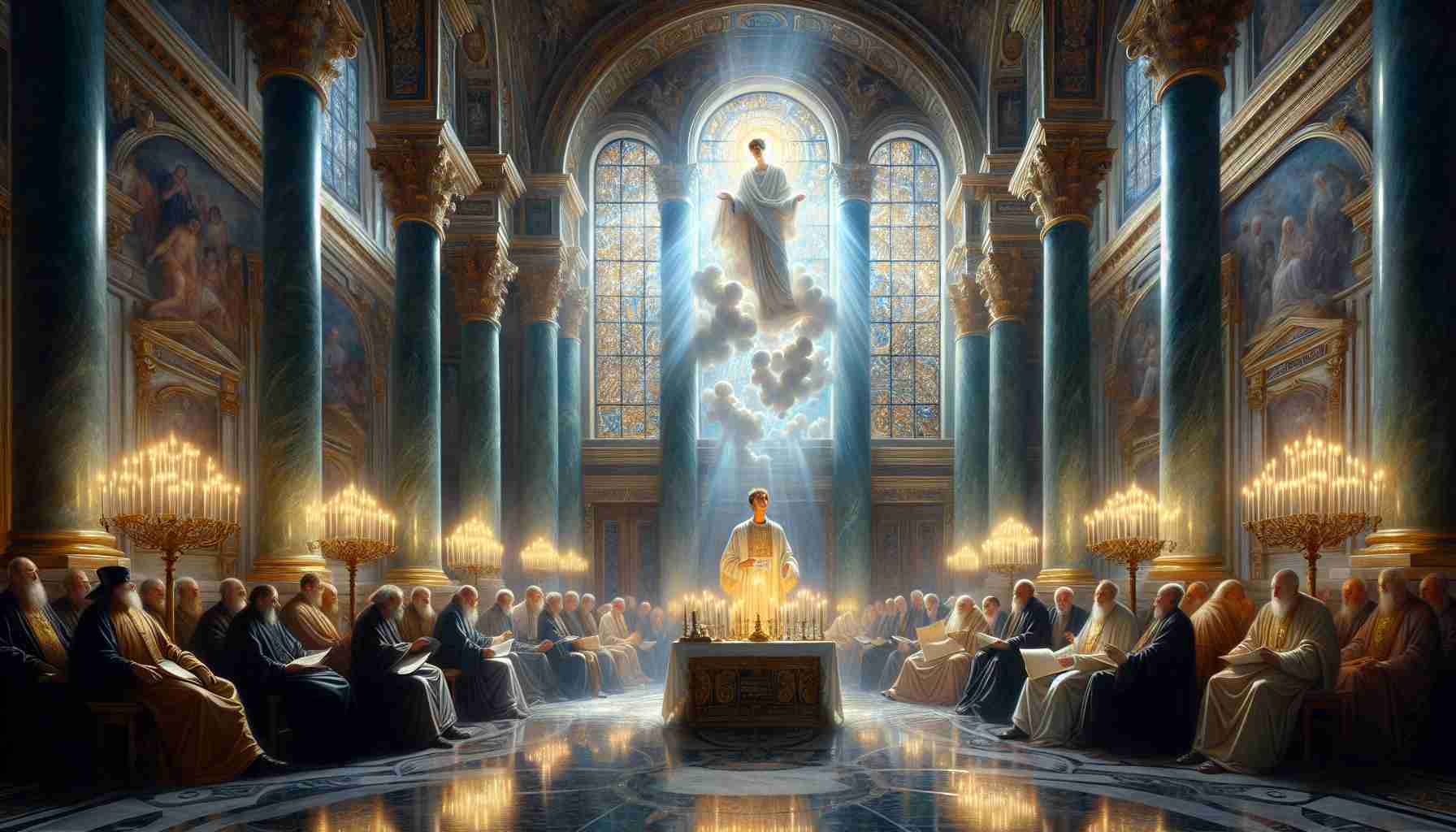

The sea wind rolled across Lake Ascania, tugging at the richly embroidered robes of bishops gathered beneath the shadow of the imperial palace. Slender cypresses swayed in silence as if listening. Behind the gilded doors of the Hall of the Nineteen, debate thundered like battle.
Some men clung to parchments damp with sweat, hands trembling beneath the weight of eternity. Others stood fiercely, their voices echoing off the marbled walls, stiff with conviction. The Council of Nicaea had been convened under the command of Emperor Constantine—not a bishop nor priest, yet cloaked in the imperial authority of Rome and baptized not by water, but by dreams of unified worship throughout his fractured empire.
On this, the nineteenth of June in the year of our Lord 325, the church stood divided over a single name: Jesus.
"Not made," Athanasius of Alexandria insisted, his young voice cutting through murmurs like a blade. "He was begotten—not created. Of the same essence as the Father."
His forehead gleamed with heat and faith. Though only a deacon, Athanasius had argued with force and clarity that stunned even the seasoned bishops. His adversary, Arius, sharply dressed and cool as the white columns surrounding them, had planted seeds of doubt across the East. Christ was exalted, yes, but wasn’t He created by the Father? Could the eternal God be born?
Lines were drawn in parchment and in hearts.
The Scripture, Philippians 2:11, glowed in memory: "Every tongue confess that Jesus Christ is Lord, to the glory of God the Father." Could such confession be rendered to one who was merely created? The question pressed into each man like a judgement.
For weeks, they had slept beneath the same stars, taken bread at the same table, and accused each other of heresy with equal fervor. Now, in this hall, something ancient stirred—something close to heaven's edge. This was not merely politics or dogma. It was the soul of the faith at stake.
At the side of the room, a bishop from Gaul whispered the creed aloud, testing its weight on his lips: “God from God, Light from Light, true God from true God…” He paused as the words sank into him, as if he were tasting something both eternal and immediate. “Begotten, not made…”
Eusebius of Caesarea, once hesitant, now stood reading the final draft with deliberate care. It rejected Arianism outright, condemning the notion that Christ had a beginning. The language was clear, uncompromising. Standing beside him, an aged bishop wept. Not for victory. For peace.
The final vote fell like thunder. Only two of the more than 300 bishops refused to sign and were promptly exiled. Arius himself was condemned, his teachings anathematized and his writings burned.
The creed was read aloud in finality, every syllable echoing like a trumpet:
“We believe in one Lord, Jesus Christ, the Son of God, begotten of the Father… light of light, very God of very God…”
Voices trembled, not with fear, but as if a temple had been rebuilt within them. These men, ragged from persecution and politics, now whispered a truth borne not from compromise, but conviction.
Outside, the great lake rippled like glass cut by the wind.
The Basilica of Nicaea—its arches white with marble and its floors laid with exquisite mosaics—would rise in coming years beside this council chamber. Some said it was built over the very site where Peter’s chains were once displayed, relics carried from the heart of Rome. Pilgrims would cross continents to kneel within its nave, seeking not miracles but certainty.
And yet, by the ninth century, fire would consume much of that basilica. Earthquakes would rend its foundations. Ottoman swords would eventually replace Gospel scrolls in the region, and minarets would pierce skies once dominated by crucifixes. Today only fragments remain—columns toppled like weary sentinels, mosaics drowned beneath centuries of soil and silence.
But the creed lived.
From desert monasteries to candlelit cathedrals, in whispered Latin and thundering Slavonic, the people of God echoed Nicaea’s declaration: that Christ was not an echo of divinity, nor a shadow of glory, but the very substance of God.
Centuries later, in cathedral choirs and in the trembling voice of a martyr at the stake, that truth endured—united not by empire, but by confession.
And in the creased pages of scripture clutched by a grandmother in hiding, or recited in secret among prisoners of ideology, it remained:
"Jesus Christ is Lord."
A creed defined Christ that day, but more, it gave the church a spine. A sword. A song.
Under the glare of imperial gold and over the rustle of dispute, they had not simply defined divinity—they had confessed it.
And heaven had listened.